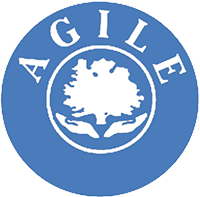4,136total OEP's trained
 Vision
Vision
To increase the reach and longer-term engagement in evidenced exercise (whether at home, in the community, in small groups or one-to-one) and achieve best possible outcomes for older people, prevent falls, injuries, improve cognition and independence.
- Review the cost effectiveness evidence for OEP (group and one to one)
- Understand where OEP and FaME ‘fit’ within an evidence-based falls prevention continuum and physical activity journey
- Analyse and understand how behaviour change strategies support adherence to achieve an effective exercise dose
- Analyse our actions and behaviours during home visits for OEP to have better conversations with individuals to support change over time
- Support consistent communication across teams during rehabilitation and beyond (are we all speaking the same language to support longer-term adherence?)
- Learn from the lessons of other services
- Develop essential practical skills to more effectively lead the OEP to frailer older people (with a high risk, or history of falls) in their homes and one-to-one settings
Training Format for OEP Leaders who work in NHS teams
The OEP Leader training for NHS workforce is delivered as a mix of online and face to face content. Therapy Support workers will be required to identify a mentor to support their learning journey and reflective practice action planning.
Online Pre-course training
Is designed to offer flexibility and allow theory elements to be completed in your own time. Other benefits include reduce travel costs and time required out of work.
Learning Journey
- Enrolment onto LLTs online learning portal 4-weeks prior to face-to-face day 1 (minimum of 8 hours mandatory learning)
- Resources are posted in time for pre-course learning
- Face-to-face training days 1 & 2 are consecutive – 9am-5pm
- Session plan and video of OEP practical and conversation skills (one-to-one specific to a persona) submitted for observation and feedback
- Reflective action plan submitted within 2 weeks of received feedback
Pre-course learning and face-to-face content
- Learning how to effectively lead the original 22 OTAGO Exercise Programme in one-to-one settings (i.e., leading positions, transition management, specific leading points, skills to increase outcomes)
- Assessment for suitability into the OEP
- Behaviour change principles and strategies to support home exercise programmes (vital to achieve dose)
- Exercise training principles, components of fitness and physical activity
- Case study/persona discussions to support;
- understanding of baseline exercise selection
- when to progress
- individualising goals and behaviour change support
- physical literacy and sit less move more prompts
- onward exercise journeys (i.e., to FaME and self-management)
- DVD/audio/digital options to compliment paper-based home exercise resources
Resources
Candidates receive a copy of the “How to Lead” Manual developed by Later Life Training and an OEP home exercise booklet (other copies freely available for download and print).
Referral forms for transition to community based exercise
DVDs and audio clips are also available to purchase on the LLT shop
Otago Community of Practice
OEP Leaders are invited to email us to join our Community of Practice for conversations and sharing with fellow professionals striving for best practice and best outcomes for older people.
Certification
Successful learners will receive a Later Life Training Certificate – OTAGO Exercise Programme Leaders Award
Level of Certification
The training was originally aligned with NVQ Level 2 in Care and Level 2 in Exercise and Fitness and will provide evidence which can be used towards specific units of NVQs but will not in itself cover the full range of an NVQ unit.
Completion of the online elements will require you to have;
- Access to computer & reliable internet
Software and Hardware requirements for your use of the training portal
There are no hardware requirements. There are software requirements – the minimum browser version that can be used is: recent Google Chrome(30+), recent Mozilla Firefox(25+), Safari 6, Microsoft Edge.
We do not recommend using smartphones or tablets for the e-learning work
Introduction
Our new format for Otago specifically addresses the current challenges and explores how changing ‘our practice and behaviours’ is at the heart of making every interaction count. This Otago training for the NHS workforce ensures that behaviour change strategies have equal importance to exercise training principles to achieve sufficient exercise dose through longer-term engagement in home exercise programmes (during and beyond discharge from therapy teams).
The Otago Exercise Programme is cited in multiple national policy documents as a strength, balance and behaviour change programme evidenced in research to reduce falls. It was developed in collaboration with Professor John Campbell and Dr Clare Robertson of Otago University, New Zealand and with Julie Whitney of Kings College Hospital Trust, London, UK and launched by LLT in 2007.
As a result of the COVID pandemic and work by the Chartered Society of Physiotherapists (CSP), AGILE and Office of Health Improvement and Disparities (OHID, previously Public Health England), falls prevention has become a national priority. Strength and balance training is now common-place and falls prevention is synonymous with the prevention of frailty, sarcopenia, and deconditioning. As the NHS and other services strive to cope with cost savings and limited resources, evidenced based practice for exercise for falls prevention has become diluted, corners cut, dose reduced, and is lacking support strategies and sufficient contact time to do this. This results in sub-optimal outcomes for older people and therefore continued return to services (revolving door).
Implementing the OEP Leader training
OEP Leaders may work across a range of settings (within the therapies in a hospital-based programme or leading falls and injury prevention sessions in community settings as part of a local health improvement plan or onward referral from the Falls or Care of the Elderly rehabilitation setting).
The OEP can be led by a range of health professionals (i.e., physiotherapists), and highly qualified exercise leaders/instructors (L3/L4) who have additional skills and professional working parameters and should be implemented as part of a broader falls prevention service. In the community, exercise professionals who are OEP Leaders are more effective when working as part of an agreed pathway whereby suitability for participation in the OEP is assessed by an appropriate health professional. LLT and AGILE have designed best practice referral forms for this purpose.

In New Zealand, a targeted home exercise program (OTAGO), to women aged over 80, a population at high risk of falls, was taught to participants in their own homes by a physiotherapist and compared to social visits as a control (for review see Campbell & Robertson 2006). Exercises were individually prescribed from a set number of warm up, muscle strength and balance training exercises to perform 3 times a week for a year. They were also encouraged to walk outdoors at their desired pace building up to 30 minutes 2-3 times a week. The physiotherapist visited each intervention participant four times over the first two months following on with regular telephone contact. The exercise group had a significantly lower rate of falls. This exercise approach, now called the Otago Exercise Programme has been further investigated in four RCTs (Campbell & Robertson 2006). A study in Norway showed that over a 12 week period, OEP delivered in groups had better improvements in balance and function than a home based programme.
More recently, ProAct65+, a research study looking at primary prevention has shown that OEP is less effective at reducing falls in low risk patients than FaME (PSI) so it is clear that OEP is suitable for frailer older people at high risk of falls and is a starting point for moving people into more challenging balance exercise for ongoing gains.
A full list of research papers and articles forming the evidence base behind OEP can be found here
This OEP training course content has been specifically designed for the NHS workforce working within therapy teams. We will require an NHS email as evidence.
Please read the essential eligibility guidance before applying for this training.
In 2023 assessment outcomes/grading for NHS workforce changed from practical ‘pass/refer’ to feedback for ‘actions and recommendations’. This shift in feedback reflects the scope of practice and governance for NHS teams and supports learning and best practice over time.
Candidates complete four assessed elements;
- Completion of multiple-choice questions – online, graded as PASS/REFER
- OEP written planning; session plan (graded as PASS/REFER)
- One-to-one practical leading and conversation skills (video submission observed and feedback provided) marked as ‘actions’ and ‘recommendations’ for ongoing best practice improvement
- Reflective practice action plan submitted within 2 weeks of practical skills assessment
Assessment Appeals Procedure – If you wish to make an appeal against your assessment decision, please complete the form contained within our LLT Appeals Procedure.
We are a not for profit organisation and always strive to keep costs down. We have been able to avoid increases for 6 years but due to increases in course running costs, we have taken the decision to increase PSI and OEP course fees by £20.
OEP (NHS) is £340 plus VAT per applicant* and includes the Course Manuals, Assessments and LLT Certification. OEP NHS Candidates are also eligible to apply for a FREE 3 months Education Connect membership upon completion of the course (please email info@laterlifetraining.co.uk if you wish to take up our membership offer).
Refer/Defer Costs
Charges may apply for late cancellation/defer of booked training days
Our Referral/Deferral fees can also be found in our OEP Terms and Conditions
*Payment must be received at least 4 weeks prior to face to face training days in order to allow access to the online training portal
Therapy Support Workers are required to identify a workplace-based support person/peer/ line-manager to support the actions and recommendations identified by LLT assessors during practical skills assessment and reflective practice action planning.
You can apply online here, but first we ask that you ensure you have read
- The statement about eligibility (above) and medical conditions and learning support requirements (below).
- The OEP Terms and Conditions for NHS settings.
Course dates can be found here. If there are no courses currently in your area we will initiate a course as soon as there is enough interest but we cannot guarantee a timeframe for this.
Hosting a course
If you are interested in hosting an OEP (NHS) course in your area, please contact the LLT Office. We do offer discounts to hosts depending on the number of applicants enrolled. Terms and Conditions for OEP Hosts can be viewed here.
Medical Conditions and Learning Support Requirements
We encourage everyone to be responsible for their own learning and ask that you please inform us, at point of booking, about any learning support requirements and/or medical conditions support that will help you to access our course content and learn effectively. All information will be treated confidentially, and we will work with you to agree reasonable adjustments to support your learning journey with us.


